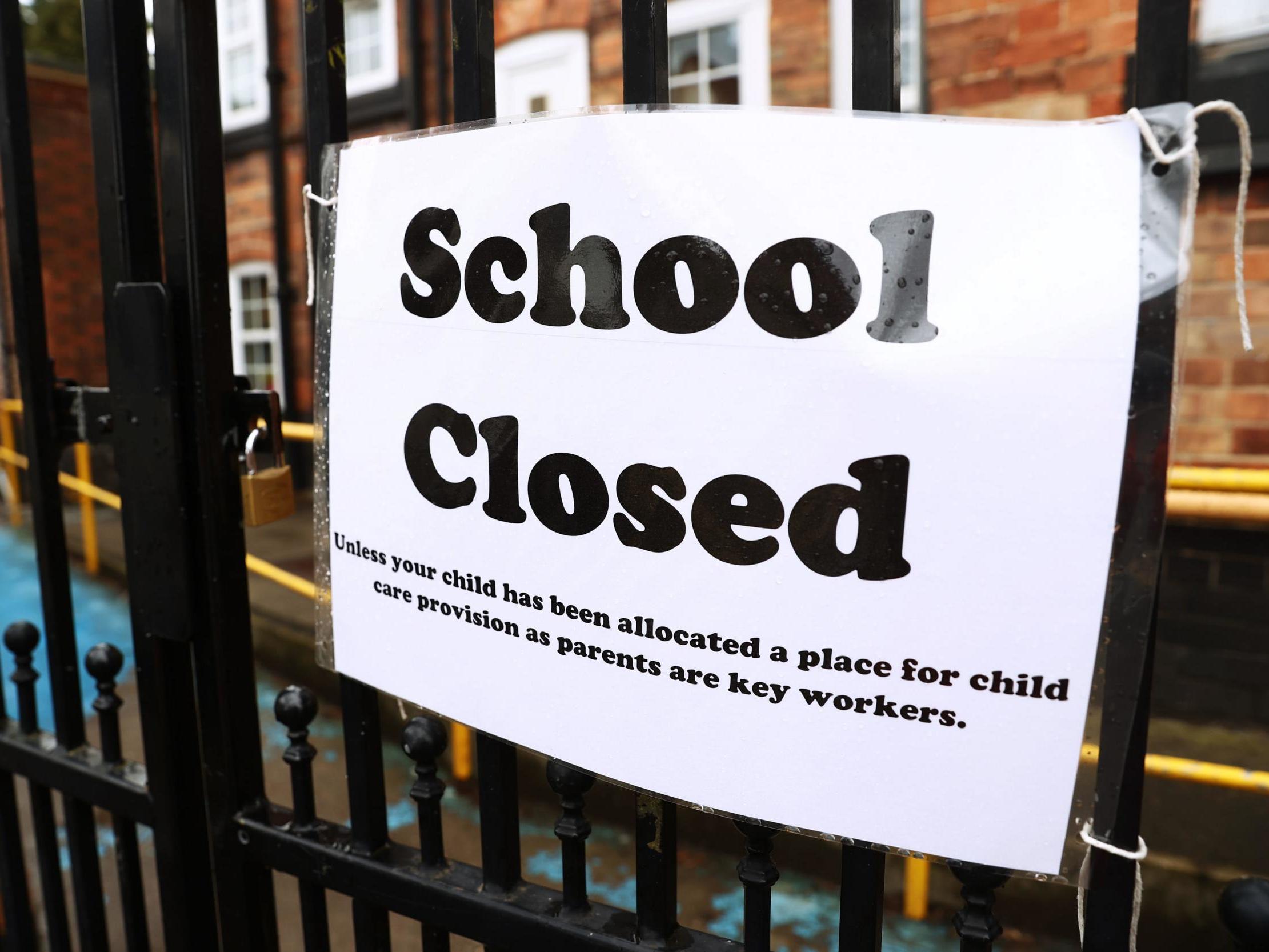Coronavirus: School closures will leave children from poorest families a week and a half behind classmates, research suggests
‘These differences will likely widen pre-existing gaps in test scores between children from different backgrounds’, researcher warns

When the first group of school children return to class as scheduled on 1 June, those in wealthier households will have had an extra week and a half of education than those who went through lockdown in less affluent family settings, a survey has suggested.
With schools shuttered for almost two months, children have been forced to turn to online classrooms for their education as parents take on the responsibility of both providing care and attempting to keep to the curriculum.
Now a survey of 4,000 parents in England, conducted by the Institute of Fiscal Studies (IFS), has found children in more affluent home settings are spending 30 per cent more time each day on learning than children from the poorest fifth of households.
The survey, carried out between 29 April and 12 May, suggests that children in better-off families will have experienced the equivalent of an extra 1.5 school weeks of home learning time compared to poorer children by June – when some years are expected to return.
Wealthier households were also twice as likely to have access to a private tutor – with 12 per cent of the most affluent students receiving an hour or more of private tuition each school day.
It comes amid concerns school closures introduced to stem the spread of coronavirus may further entrench inequalities between children in the richest and poorest families.
Lucy Kraftman, research economist at IFS and an author of the report, said: “There are significant differences in how children are spending their time during school closures.
“Children in lower-income households are spending significantly less time on both schoolwork and non-school learning activities than their better-off peers. Compared with children in the poorest fifth of families, those in the richest fifth are spending more than 75 minutes longer every day on work assigned by their school.
“Even for those pupils returning to school on 1 June, over the 34 school days that closures will have been in place, this will translate to a week and a half of full-time school. Children in better-off families are also more than twice as likely to receive private tutoring, with around 12 per cent of these students being tutored for an hour or more each day.
“These differences will likely widen pre-existing gaps in test scores between children from different backgrounds.”
The survey also found better off children were more likely to have access to the resources they needed for home learning – with 14 per cent of families saying they did not have access to a computer or tablet to help their child to learn online.
However, despite the damage of time away from the classroom, just under half of parents said they would be willing to send their child back to class if given the choice – with less affluent families more likely than others to keep their children at home.
While the government has offered to help bridge the access gap for some of the most disadvantaged by supplying laptops and internet access, concerns have been raised that the measure does not go far enough to ensure all children have access to education.
Liberal Democrat education spokesperson Layla Moran – who has previously called for an army of former educators to be brought in to identify at risk and disadvantaged children for further support – said: “Too many children still do not have access to the internet and their own devices, and there is huge variation in practice.
“To halt an ever growing disadvantage gap, the government should also provide all disadvantaged students with the tools they need and set a minimum requirement for online school provision.
“We all want schools to reopen to more pupils, but it has to be safe for them first. We need to see the full scientific advice that the Government has based its strategy on, and to have a grown-up conversation in this country about the risks and rewards.
“It must be safety first, and our primary goal has to be making sure the most disadvantaged kids are safe and able to learn.”
Join our commenting forum
Join thought-provoking conversations, follow other Independent readers and see their replies
Comments
Bookmark popover
Removed from bookmarks